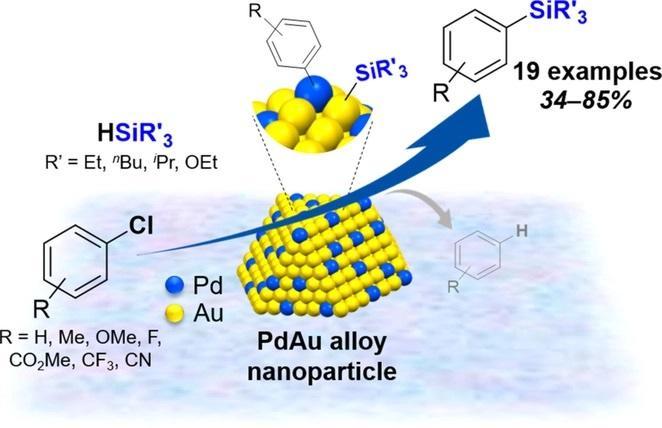Our paper reporting silylation of aryl chlorides by bimetallic catalysis of palladium and gold on alloy nanoparticles was published in Advanced Synthesis & Catalysis (Wiley-VCH).
「Silylation of Aryl Chlorides by Bimetallic Catalysis of Palladium and Gold on Alloy Nanoparticles」Miura, Hiroki; Masaki, Yosuke; Fukuta, Yohei; Shishido, Tetsuya
Advanced Synthesis & Catalysis , 2020, DOI: 10.1002/adsc.202000045
[Highlighted as "VIP" (Very Importnat Publication)]
Supported palladium-gold alloy-catalyzed cross-coupling of aryl chlorides and hydrosilanes enabled the selective formation of aryl-silicon bonds. Whereas a monometallic palladium catalyst predominantly promoted the hydrodechlorination of aryl chlorides and gold nanoparticles showed no catalytic activity, gold-rich palladium-gold alloy nanoparticles efficiently catalyzed the title reaction to give arylsilanes with high selectivity. A wide array of aryl chlorides and hydrosilanes participated in the heterogeneously-catalyzed reaction to furnish the corresponding arylsilanes in 34-80% yields. A detailed mechanistic investigation revealed that palladium and gold atoms on the surface of alloy nanoparticles independently functioned as active sites for the formation of aryl nucleophiles and silyl electrophiles, respectively, which indicates that palladium and gold atoms on alloy nanoparticles work together to enable the selective formation of aryl-silicon bonds.
